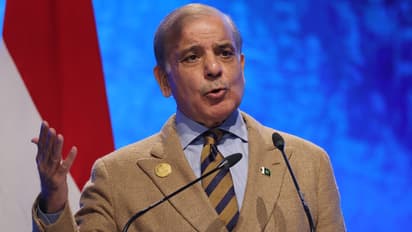Pakistan President Alvi dissolves Parliament: What's next for crisis-hit country

Synopsis
The Pakistani president has directed the outgoing government to appoint a new interim prime minister within three days and to hold the general elections within 90 days. Nonetheless, the departing government has raised the possibility of delaying the elections until the following year.
Amidst a backdrop of political unrest and a persisting economic crisis, Pakistan has taken the step of dissolving its parliament, a move executed late on Wednesday. This decision comes as a recommendation from Prime Minister Shehbaz Sharif and serves as a precursor to an upcoming general election.
This dissolution has now paved the path for a caretaker administration to oversee the electoral process, during which former Prime Minister Imran Khan will find himself ineligible for participation. Khan's recent imprisonment, resulting from a corruption conviction in one of the multiple cases brought against him since his ousting from office in April 2022, adds another layer of complexity to the situation.
The Pakistani president has directed the outgoing government to appoint a new interim prime minister within three days and to hold the general elections within 90 days. Nonetheless, the departing government has raised the possibility of delaying the elections until the following year.
Here's what next for Pakistan, and Imran Khan
Reports indicate that the Pakistani administration is contemplating a potential postponement of the impending elections. This consideration arises from the government's struggle to address mounting security and political challenges, adding a layer of threat to a nation already grappling with financial constraints.
The state of unrest within Pakistan has also drawn the attention of the United States, triggering a heightened sense of vigilance. John Kirby, a representative from the White House, emphasized concerns about actions, particularly those with a violent dimension, that could potentially contribute to further instability in Pakistan or any other nation sharing common counterterrorism interests.
In the prior general elections of 2018, Khan's Pakistan Tehreek-e-Insaf (PTI) emerged victorious with the highest number of seats. Shortly thereafter, the former cricket luminary assumed office as the prime minister. As the next round of general elections approaches, the Pakistani military, known for orchestrating multiple coups since 1947, looms large once more, casting its influence across the strife-ridden landscape.
Experts point to the military's considerable role in shaping Khan's popularity and his subsequent removal from power. Contentious relations with the military significantly impacted his political trajectory. The former cricket captain took a confrontational stance against the military, asserting its interference in politics. He even went so far as to accuse an intelligence officer of orchestrating an assassination attempt in November, during which he sustained a gunshot wound to the leg.
Check the Breaking News Today and Latest News from across India and around the world. Stay updated with the latest World News and global developments from politics to economy and current affairs. Get in-depth coverage of China News, Europe News, Pakistan News, and South Asia News, along with top headlines from the UK and US. Follow expert analysis, international trends, and breaking updates from around the globe. Download the Asianet News Official App from the Android Play Store and iPhone App Store for accurate and timely news updates anytime, anywhere.